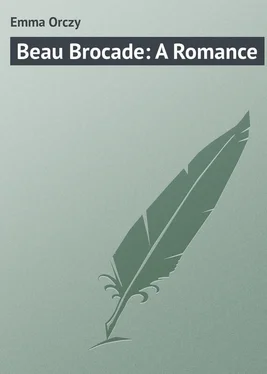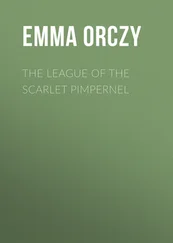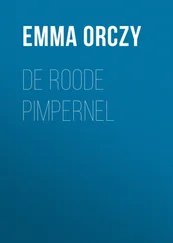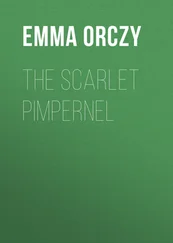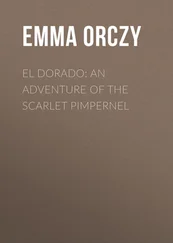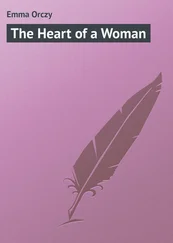Emma Orczy - Beau Brocade - A Romance
Здесь есть возможность читать онлайн «Emma Orczy - Beau Brocade - A Romance» — ознакомительный отрывок электронной книги совершенно бесплатно, а после прочтения отрывка купить полную версию. В некоторых случаях можно слушать аудио, скачать через торрент в формате fb2 и присутствует краткое содержание. Жанр: foreign_language, foreign_prose, на английском языке. Описание произведения, (предисловие) а так же отзывы посетителей доступны на портале библиотеки ЛибКат.
- Название:Beau Brocade: A Romance
- Автор:
- Жанр:
- Год:неизвестен
- ISBN:нет данных
- Рейтинг книги:4 / 5. Голосов: 1
-
Избранное:Добавить в избранное
- Отзывы:
-
Ваша оценка:
- 80
- 1
- 2
- 3
- 4
- 5
Beau Brocade: A Romance: краткое содержание, описание и аннотация
Предлагаем к чтению аннотацию, описание, краткое содержание или предисловие (зависит от того, что написал сам автор книги «Beau Brocade: A Romance»). Если вы не нашли необходимую информацию о книге — напишите в комментариях, мы постараемся отыскать её.
Beau Brocade: A Romance — читать онлайн ознакомительный отрывок
Ниже представлен текст книги, разбитый по страницам. Система сохранения места последней прочитанной страницы, позволяет с удобством читать онлайн бесплатно книгу «Beau Brocade: A Romance», без необходимости каждый раз заново искать на чём Вы остановились. Поставьте закладку, и сможете в любой момент перейти на страницу, на которой закончили чтение.
Интервал:
Закладка:
Orczy Emmuska Orczy, Baroness
Beau Brocade: A Romance
PART I
THE FORGE
CHAPTER I
BY ACT OF PARLIAMENT
The gaffers stood round and shook their heads.
When the Corporal had finished reading the Royal Proclamation, one or two of them sighed in a desultory fashion, others murmured casually, "Lordy! Lordy! to think on it! Dearie me!"
The young ones neither sighed nor murmured. They looked at one another furtively, then glanced away again, as if afraid to read each other's thoughts, and in a shamefaced manner wiped their moist hands against their rough cord breeches.
There were no women present fortunately: there had been heavy rains on the Moor these last three days, and what roads there were had become well-nigh impassable. Only a few men – some half-dozen perhaps – out of the lonely homesteads from down Brassington way, had tramped in the wake of the little squad of soldiers, in order to hear this Act of Parliament read at the cross-roads, and to see the document duly pinned to the old gallows-tree.
Fortunately the rain had ceased momentarily, only a cool, brisk nor'-wester came blustering across the Heath, making the older men shiver beneath their thin, well-worn smocks.
North and south, east and west, Brassing Moor stretched its mournful lengths to the distant framework of the Peak far away, with mile upon mile of grey-green gorse and golden bracken and long shoots of purple-stemmed bramble, and here and there patches of vivid mauve, where the heather was just bursting into bloom; or anon a clump of dark firs, with ruddy trunks and gaunt arms stretched menacingly over the sparse young life below.
And here, at the cross-roads, the Heath seemed more desolate than ever, despite that one cottage with the blacksmith's shed beyond it. The roads themselves, the one to Aldwark, the other from Wirksworth, the third little more than a morass, a short cut to Stretton, all bore mute testimony to the remoteness, the aloofness of this forgotten corner of eighteenth-century England.
Then there was the old gallows, whereon many a foot-pad or sheep-stealer had paid full penalty for his crimes! True, John Stich, the blacksmith, now used it as a sign-post for his trade: a monster horseshoe hung there where once the bones of Dick Caldwell, the highwayman, had whitened in the bleak air of the Moor: still, at moments like these, when no one spoke, the wind seemed to bring an echo of ghostly sighs and laughter, for Dick had breathed his last with a coarse jest on his lips, and the ears of the timid seemed still to catch the eerie sound of his horse's hoofs ploughing the ruddy, shallow soil of the Heath.
For the moment, however, the cross-roads presented a scene of quite unusual animation: the Corporal and his squad looked resplendent in their scarlet tunics and white buckskins, and Mr Inch, the beadle from Brassington, was also there in his gold-laced coat, bob-tailed wig and three-cornered hat: he had lent the dignity of his presence to this solemn occasion, and in high top-boots, bell in hand, had tramped five miles with the soldiers, so that he might shout a stentorian "Oyez! Oyez!" whenever they passed one of the few cottages along the road.
But no one spoke. The Corporal handed the Royal Proclamation to one of the soldiers; he too seemed nervous and ill at ease. The nor'-wester, with singular want of respect for King and Parliament, commenced a vigorous attack upon the great document, pulling at it in wanton frolic, almost tearing it out of the hands of the young soldier, who did his best to fix it against the shaft of the old gallows.
The white parchment looked uncanny and ghost-like fluttering in the wind; no doubt the nor'-wester would soon tear it to rags.
"Lordy! Lordy! to think on it!"
There it was, fixed up at last. Up, so that any chance traveller who could might read. But those who were now assembled there – shepherds, most of them, on the Moor – viewed the written characters with awe and misgiving. They had had Mr Inch's assurance that it was all writ there, that the King himself had put his name to it; and the young Corporal, who had read it out, had received the document from his own superior officer, who in his turn had had it at the hands of His Grace the Duke of Cumberland himself.
"It having come to the knowledge of His Majesty's Parliament that certain subjects of the King have lately raised the standard of rebellion, setting up the Pretender, Charles Edward Stuart, above the King's most lawful Majesty, it is hereby enacted that these persons are guilty of high treason and by the laws of the kingdom are therefore condemned to death. It is further enacted that it is unlawful for any loyal subject of the King to shelter or harbour, clothe or feed any such persons who are vile traitors and rebels to their King and country: and that any subject of His Majesty who kills such a traitor or rebel doth thereby commit an act of justice and loyalty, for which he may be rewarded by the sum of twenty guineas."
It was this last paragraph that made the gaffers shake their heads and say "Lordy! Lordy! to think on it! to think on it!" For it seemed but yesterday that the old Moor, aye, and the hamlets and villages of Derbyshire, were ringing with the wild shouts of Prince Charlie's Highland Brigade, but yesterday that his handsome face, his green bonnet laced with gold, his Highland plaid and rich accoutrements, had seemed to proclaim victory to the Stuart cause from one end of the county to the other.
To be sure, that glorious, mad, merry time had not lasted very long. All the wiseacres had foretold disaster when the Prince's standard broke, just as it was taken into my Lord Exeter's house in Full Street. The shaft snapped clean in half. What could that portend but humiliation and defeat?
The retreat from Derby was still fresh in everyone's memory, and there were those from Wirksworth who remembered the rear-guard of Prince Charlie's army, the hussars with their half-starved horses and bedraggled finery, who had swept down on the villages and homesteads round about Ashbourne and had pillaged and plundered to their hearts' content.
But then those were the fortunes of war; fighting, rushing, running, plundering, wild huzzas, mad cavalcades, noise, bustle, excitement, joy of victory, and sorrow of defeat, but this!! … this Proclamation which the Corporal had brought all the way from Derby, and which had been signed by King George himself, this meant silence, hushed footsteps, a hidden figure perhaps, pallid and gaunt, hiding behind the boulders, or amidst the gorse on the Moor, or perishing mayhap at night, lost in the bog-land up Stretton way, whilst Judas-like treads crept stealthily on the track. It meant treachery too, the price of blood, a fellow-creature's life to be sold for twenty guineas.
No wonder the gaffers could think of nothing to say; no wonder the young men looked at one another shamefaced, and in fear.
Who knows? Any Derbyshire lad now might become a human bloodhound, a tracker of his fellow-creatures, a hunter of men. There were twenty guineas to be earned, and out there on the Heath, in the hut of the shepherd or the forge of the smith, many a pale wan face had been seen of late, which…
It was terrible to think on; for even out here, on Brassing Moor, there existed some knowledge of Tyburn Gate, and of Tower Hill.
At last the groups began to break up, the Corporal's work was done. His Majesty's Proclamation would flutter there in the cool September wind for awhile; then presently the crows would peck at it, the rain would dash it down, the last bit of dirty rag would be torn away by an October gale, but in the meanwhile the few inhabitants of Brassington and those of Aldwark would know that they might deny a starving fellow-creature bread and shelter, aye! and shoot him too, like a wild beast in a ditch, and have twenty guineas reward to boot.
Читать дальшеИнтервал:
Закладка:
Похожие книги на «Beau Brocade: A Romance»
Представляем Вашему вниманию похожие книги на «Beau Brocade: A Romance» списком для выбора. Мы отобрали схожую по названию и смыслу литературу в надежде предоставить читателям больше вариантов отыскать новые, интересные, ещё непрочитанные произведения.
Обсуждение, отзывы о книге «Beau Brocade: A Romance» и просто собственные мнения читателей. Оставьте ваши комментарии, напишите, что Вы думаете о произведении, его смысле или главных героях. Укажите что конкретно понравилось, а что нет, и почему Вы так считаете.
